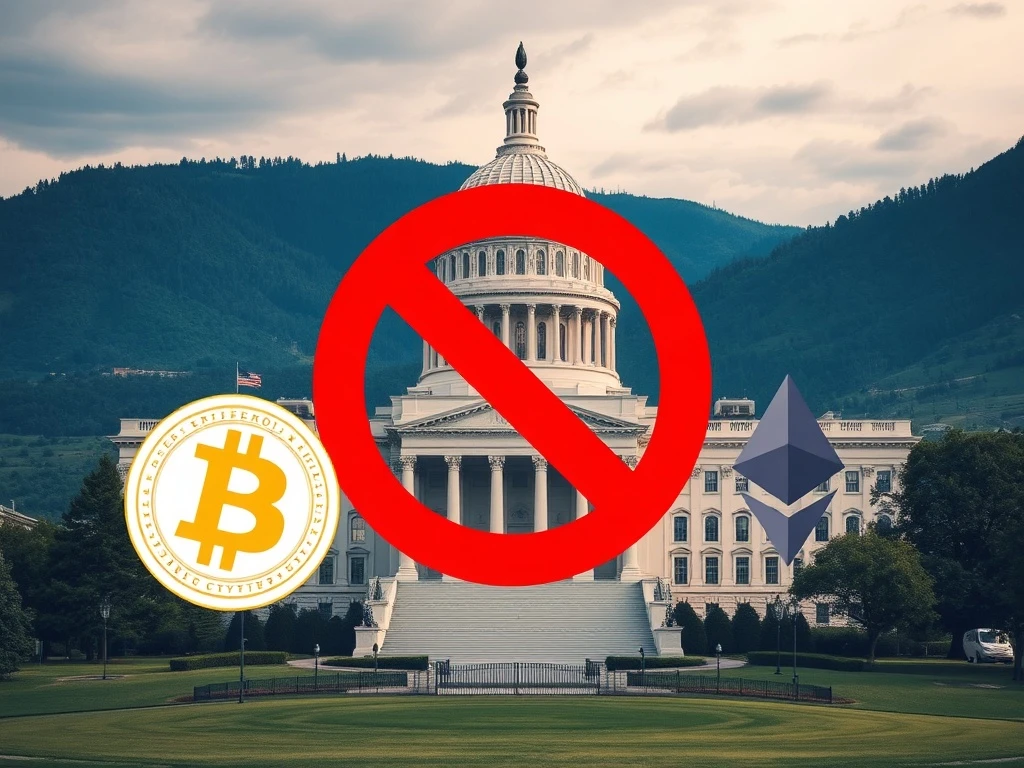Connecticut Crypto Law: Major Prohibition on Government Digital Asset Use

The state of Connecticut is taking a firm stance on digital assets within its government operations. A significant piece of legislation, recently signed into law by Governor Ned Lamont, explicitly prohibits the state government from engaging with cryptocurrencies in several key ways. This development marks a distinct path compared to other US states exploring digital asset integration.
Understanding the Connecticut Crypto Law
Connecticut House Bill 7082, championed by state Representative Jason Doucette, received strong bipartisan support before reaching the governor’s desk. The core provisions of this new Connecticut crypto law are clear and restrictive:
- The state government is barred from accepting or requiring payments in virtual currency.
- The state government cannot purchase, hold, invest in, or establish a cryptocurrency reserve.
These specific prohibitions on holding a Connecticut crypto reserve or accepting crypto payments are set to take effect on October 1st. The bill also includes separate requirements for businesses operating as crypto money transmitters within the state.
Why the Connecticut Government Crypto Ban?
While the explicit reasons from lawmakers weren’t detailed in the source, commentary suggests this move is largely symbolic. According to legal experts like Aaron Brogan, this Connecticut government crypto ban may be intended to signal the state’s position on digital assets, particularly in contrast to states that are actively pursuing crypto reserves. It reflects a potential divide in US state crypto policy, possibly influenced by national political debates surrounding cryptocurrency.
This approach is seen by some as doing “nothing of substance” in practical terms but serves as a clear statement of opposition to integrating cryptocurrencies into state treasury or payment systems.
Contrasting State Approaches to Crypto Reserves
Connecticut’s decision highlights the varied landscape of digital asset regulation and policy across the United States. While Connecticut prohibits a state crypto reserve, other states have moved in the opposite direction:
- Texas Governor Greg Abbott approved legislation to create a crypto reserve.
- New Hampshire Governor Kelly Ayotte also greenlit similar legislation.
Conversely, efforts in states like South Dakota, Montana, and Pennsylvania to establish Bitcoin reserves failed to pass legislative hurdles in 2025. This shows a clear divergence in how states perceive the role and potential risks/benefits of holding digital assets.
At the federal level, discussions around a ‘Strategic Bitcoin Reserve’ have also occurred, though concrete steps beyond managing seized assets remain debated.
Implications for Digital Asset Regulation
The Connecticut crypto law contributes to the evolving patchwork of digital asset regulation in the US. While this specific law focuses on the state government’s interaction with crypto, it signals a cautious, if not outright resistant, regulatory environment in Connecticut regarding broader crypto adoption in official capacities. Businesses operating in the state, particularly money transmitters, will need to comply with the new requirements outlined in the bill, further shaping the regulatory landscape for the industry.
Summary: Connecticut’s Clear Message
Connecticut has sent a clear message regarding its government’s interaction with digital assets. By enacting a law that bans accepting crypto payments and establishing a state Connecticut crypto reserve, the state government has taken a step that contrasts sharply with crypto-friendly states. While the practical impact on the broader crypto market may be minimal, this Connecticut government crypto ban is a significant piece of US state crypto policy, illustrating the ongoing debate and diverse approaches to digital asset regulation across the nation.








